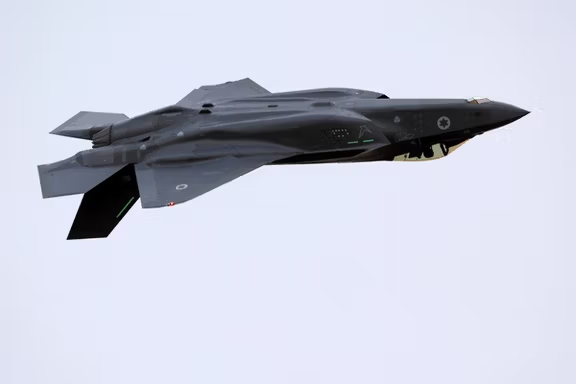The General Staff of Iran's Armed Forces had earlier said in a statement that Israeli aircraft used the airspace provided by the US military in Iraq to launch several long-range air-launched missiles towards some border radars in the provinces of Ilam, Khuzestan, and around Tehran province.
Israel launched the airstrikes in the early hours of Saturday in retaliation for Tehran's October 1 missile barrage, which Iran called a response to the Israeli assassinations of Hamas chief Ismail Haniyeh in Tehran and Hezbollah chief Hassan Nasrallah in Beirut, among others.
The Israeli airstrikes only targeted Iran's military sites and facilities, following weeks of US efforts to dissuade Israel from targeting nuclear and energy infrastructure in Iran in a bid to avoid further escalation of conflict in the volatile region.
US President Joe Biden on Saturday said it appeared Israel had only struck military targets in its attack on Iran, and that he hoped they were "the end."
The Israeli attacks killed at least four Iranian army personnel, including two officers working in the missile unit, according to IRGC-affiliated Tasnim News.
Air defenses, missile program component hit by Israel
"Four S-300 air defense batteries that were in strategic locations and protected Tehran and nuclear and energy facilities in Iran were attacked," Axios quoted the sources as saying, confirming an earlier report by The New York Times about Israel's targeting of the Russian-made defense system.
The report also said that 12 'planetary mixers' that are a critical component in Iran's ballistic missile program were attacked in the Israeli air raids. "The planetary mixers are used to produce solid fuel for long-range ballistic missiles, and their destruction severely damages Iran's ability to renew its missile stockpile," the report explained.
The Israeli sources speaking to Axios said that the mixers are highly sophisticated equipment that Iran cannot produce on its own and must purchase it in China. "Remanufacturing of the mixers could take at least a year."
Iran downplaying the Israeli attack
The General Staff of Iran's Armed Forces says the Israeli attacks resulted in "limited and minimal" damage thanks to the "timely performance of the country's air defense." It acknowledged damages to several radar systems, saying that some of the radars were immediately repaired, while others are in the process of being repaired.
Iran's Foreign Minister Abbas Araghchi said on Saturday that Tehran "has no limits in defending its interests and territorial integrity, and we will defend not just every inch but every centimeter of our land.
Speaking in an interview with the official website of Iran's Supreme Leader, Araghchi emphasized that the Iranian government will continue its policy of confronting Israel with determination but refrained from talking of revenge or retaliation.
"The Islamic Republic is trying to downplay the intensity of Israel's attacks... Essentially, the idea of revenge has been removed from the political rhetoric of its leaders, and they are not looking to show a reaction," political analyst Jamshid Barzegar told Iran International.
The recent Israeli attack appears to be a "temporary endpoint" to the tensions between the two countries, and we are unlikely to see any direct confrontation between them until the upcoming US elections, he added.








